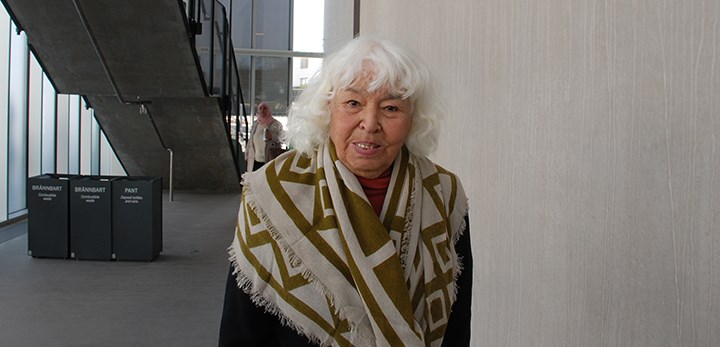Fight against honour-related violence gathers activists, politicians and researchers

Nawal El Saadawi visiting Örebro University
Nawal El Saadawi, Egyptian author, physician and political activist has visited Örebro University to meet with politicians, practitioners and researchers. The event concluded the EU project Fatima – a project against honour-related violence.
Nawal El Saadawi is much talked about. As an author, she has featured in the speculations for the Nobel Prize in Literature. As a physician, she has been in charge of public health issues in Egypt. And as an activist, she was imprisoned by the Egyptian president. All through her professional life it is, however, the fight against honour-related violence and oppression that has set the course.
“Women must seize every opportunity to speak for themselves, and not let men do it,” Nawal El Saadawi said in her keynote speech.
All in all, 170 activists, practitioners, politicians, researchers and artists came together in Örebro to summarise the EU-funded project and discuss ways forward in the work against violence and oppression.
“We have worked with ethnic minority organisations in four different countries. We have examined what they need help with, but we have also identified new ways in which to discuss human rights and crimes of honour. It is a project that encompasses both research and practice,” says Sofia Strid, researcher in gender studies at Örebro University.
Included four countries
The Fatima project was carried out in the UK, Greece, Portugal and Sweden. Researchers and practitioners have met with representatives of 25 different organisations in each country and have, among other things, trained leaders in talking about human rights and honour-related violence with their members.
“We have for instance designed a game which is played over 10 weeks. Participants are asked a question, for example what you do if you know that your neighbours smack their children? They are then given a week to find out the answer,” says Sofia Strid.
The answers cannot be found in the game, but the participants simply have to find out which authority to turn to, and pay them a visit in order to find the answer to the question.
“It is a way of bridging the gap between people and authorities and hopefully removing the fear that many experience when it comes to contacting the authorities. Also, not only will they find out how the authorities work, they also learn about the laws and regulations that apply in Sweden. They then bring the answer back to the group,” says Sofia Strid.
Talking about difficult issues
“Talking about difficult issues is important. That is something I learnt in one of my previous research projects which was about genital mutilation. I met men who had never even uttered the word and who were not aware of the health problems it causes,” she continues.
Other speakers at the conference included Bhutina Khuroy, a Palestinian documentary film-maker, talking about Palestinian women who have been imprisoned, and Jeff Hearn, researcher in gender studies at Örebro University, speaking about his research on gender, sexuality and violence.
The conference was organised by Örebro County Administrative Board and Örebro University in cooperation with Folkuniversitetet in Uppsala. Read more about the Fatima project.
Text: Linda Harradine
Translation: Charlotta Hambre-Knight
Photo: Maria Elisson, Linda Harradine
